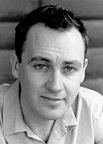The Prom Concert on August 10, given by the BBC Symphony, conducted by Edward Gardner, included two first performances, both of them commissioned by the BBC for this season of the Proms. These were among the 13 first performances and 7 UK first performances on the Proms this season.
 Michael Berkeley’s Slow Dawn is a revision and reorchestration of a work written three years ago for wind band, which had been commissioned by the British conductor and horn player Tim Reynish as a memorial piece for his son William. Berkeley intended it as a depiction of dawn in Wales where he lives, and follows the deliberate and inexorable tread of the sun from the first hints of light through its early appearance with to its full presence with stabbing rays of daylight. This sunrise is a long way from Daphnis and Chloe (or, for that matter, from Sibelius’s Night Ride and Sunrise, which preceded this piece on this program). Here the focus is on the tread of ‘the kind old sun’ (as Berkeley says, quoting Wilfred Owen) in its endless recurrence and its complete disregard for more transient human concerns. Starting with deliberate slow dirge rhythm in the percussion, which recurs periodically over the its course, the tonalish work builds, via lines which are increasingly quicker and more agitated, over a dense, very closely spaced harmonic texture to a violently rhythmic climax; it leaves a dramatic and satisfying impression.
Michael Berkeley’s Slow Dawn is a revision and reorchestration of a work written three years ago for wind band, which had been commissioned by the British conductor and horn player Tim Reynish as a memorial piece for his son William. Berkeley intended it as a depiction of dawn in Wales where he lives, and follows the deliberate and inexorable tread of the sun from the first hints of light through its early appearance with to its full presence with stabbing rays of daylight. This sunrise is a long way from Daphnis and Chloe (or, for that matter, from Sibelius’s Night Ride and Sunrise, which preceded this piece on this program). Here the focus is on the tread of ‘the kind old sun’ (as Berkeley says, quoting Wilfred Owen) in its endless recurrence and its complete disregard for more transient human concerns. Starting with deliberate slow dirge rhythm in the percussion, which recurs periodically over the its course, the tonalish work builds, via lines which are increasingly quicker and more agitated, over a dense, very closely spaced harmonic texture to a violently rhythmic climax; it leaves a dramatic and satisfying impression.
 Gaudete by Scottish composer Stuart MacRae is an almost half hour long piece for soprano and large orchestra, setting poems from the book of the same name by Ted Hughes. The piece begins with very arresting ferociously clattering music for the full orchestra which gradually clears to reveal the soprano singing stratospherically high without words. All of this is very effective and it all lands with something of a thud as soon as attention is turned to words, when the voice part, along with everything else, becomes labored and constricted, in terms of both rhythm and tempo.
Gaudete by Scottish composer Stuart MacRae is an almost half hour long piece for soprano and large orchestra, setting poems from the book of the same name by Ted Hughes. The piece begins with very arresting ferociously clattering music for the full orchestra which gradually clears to reveal the soprano singing stratospherically high without words. All of this is very effective and it all lands with something of a thud as soon as attention is turned to words, when the voice part, along with everything else, becomes labored and constricted, in terms of both rhythm and tempo.
This actually seemed to me to set the pattern for the piece, with instrumental music in what might be described as a high modernist style, managed in a very dramatically effective and masterly way, is cut short and undercut by vocal writing which is much less skillful, much less effective, and as a result, tends to come off much more as merely dealing in cliches of that same high modernist style, with endless jagged lines covering enormous registral stretches in jerky rhythms. At one point, when the text says “He never stops trying to dance, trying to sing,” when the singer launches into long melissmas of a sort of new music yodelling, one could imagine that the idea was to depict the failed effort described by the words, but the music is so much like all the rest of the voice part that it’s not possible to be completely sure whether that might be the composer’s intentions. It wasn’t clear to me exactly what the subject matter of the Hughes, as represented by the texts used or as discussed at some length in MacRae’s program notes, might be (and further rereading after the fact didn’t make things any clearer).
As the piece progressed I began to wish that MacRae had simply written a completely instrumental piece, somewhat shorter, that evoked whatever it was we were supposed to get out of the texts, and left the words out altogether. Had he done that, and had that meant leaving out the soprano (as opposed to having a wordless voice part, which could have been very effective), on the other hand, it would have been a loss, since it would have meant not having heard the really wonderful singing of Susanne Andersson, who always sang beautifully, and managed to make practically all the words comprehensible, despite all the obstacles MacRae had put in her path.
The August 13 Proms concert featured the Gothenburg Symphony Orchestra conducted by Gustavo Dudamel. The concert attracted a certain amount of general interest on account of Dudemal, who had, along with the Simon Bolivar Youth Orchestra, created a sensation in last year’s Proms. There was early press, especially by Charlotte Higgins in the Guardian, declaring him the savior of classical music, and in any case, some curiosity, it seemed, to see how he would do when working with grownups.
 Their program included, along with LaValse and the Symphonie fantastique, the first UK performance of the Clarinet Concerto, subtitled Peacock Tales, by Swedish composer Anders Hillborg, with soloist Martin Fröst. Fröst is an accomplished mime, as well as being a clarinet player, and the work, which was written for him, was tailored to his extraordinary abilities, including over its thirty minute duration not just playing, but mime, dance, and lighting.
Their program included, along with LaValse and the Symphonie fantastique, the first UK performance of the Clarinet Concerto, subtitled Peacock Tales, by Swedish composer Anders Hillborg, with soloist Martin Fröst. Fröst is an accomplished mime, as well as being a clarinet player, and the work, which was written for him, was tailored to his extraordinary abilities, including over its thirty minute duration not just playing, but mime, dance, and lighting.
After a quite effective opening soliloquy for the soloist, the orchestra came in, and, after awhile the music got very intense (with what the program notes described as “shreiks and wild glissandos.”) The soloist sometimes wore a mask, which was a sort of fox face. After a while he moved the mask around to the back of his head, which made him look a little like some kind of mouseketeer. His movements were very choreographed and often intricate. The music for much of this consisted of repeated ostinato figures in the orchestra. Sometimes there was red lighting, sometimes blue; sometimes there bright white light, sometimes the lights were dimmed. (In any case, there was nothing at all intricate about the it.) The demands made on the soloist, both musically and dramatically were quite extreme. The program notes said that the piece was a “journey through many different musical and emotional ‘stations.” The single overarching line of aesthetic intention which would have rendered all of this a coherent musical and dramatic experience alluded this listener completely.
Earlier in the afternoon there had been a Composer Portrait event, which had included performances of other works of Hilborg’s: Close-ups, for solo flute, Close-up for bassoon and tape, Six Pieces for Wind Quintet, and Corrente della Primavera for solo piano, all performed with high style by musicians from the Royal Academy of Music. These pieces represented rather more clearly Hilborg’s background in rock music. The bassoon piece consisted of the first minute of the flute piece (which is music which Hilborg said he had used in many of his works) played to a drum track. It had the effect of somewhat slowing it down first of all, but also of providing a metrical background which did make the same music seem rather different. Corrente della Primavera is an extremely difficult breathless perpetual motion piece, which received a drop dead, take no prisoners performance from Alissa Firsova.
All of the Proms concerts are streamed as they happen, and are also available on the Proms website (http://www.bbc.co.uk/proms/2008/) for a week after the concert. The concerts are also rebroadcast a few days later, and those rebroadcasts are also available for a week, so there are ample opportunities to listen to them.

“A sort of new music yodeling” — man, been there like a hundred times. Two hundred. Perfect description.
Uh, um, not like I ever did that ….
There actually audio rather than video.
Thanks for the link to the proms site – will definitely check out the videos. It’s good to have a youtube alternative.